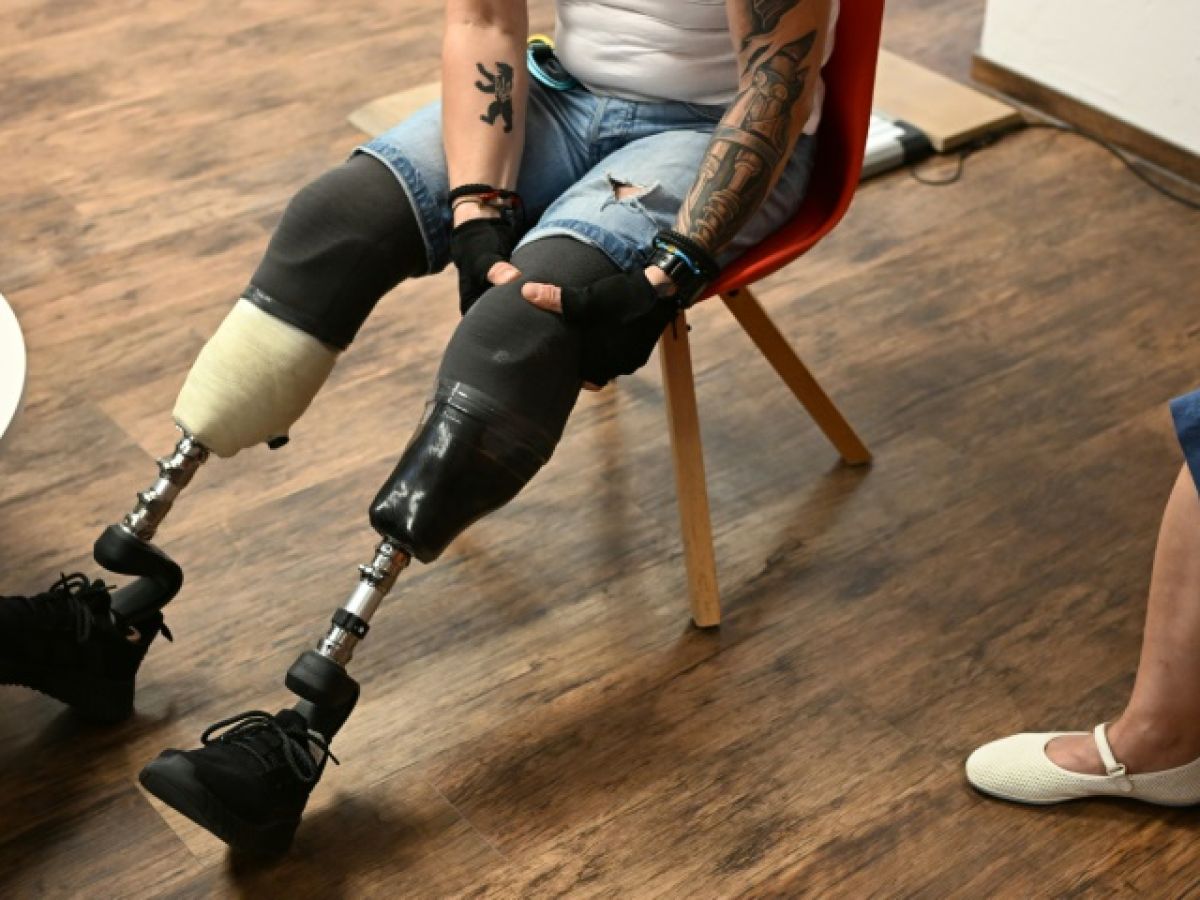Vitaliy Saiko, a former soldier who lost his legs during the war in Ukraine, compares his new limbs, made by a Berlin prosthetist, to a sports car.
"It's a custom job. It's like building a Lamborghini, everything is assembled according to the customer's wishes," the 42-year-old Ukrainian told AFP.
With his brand new prostheses, he is one of the first patients to benefit from a German care programme for Ukrainian amputees.
And in Ukraine, it is often difficult to carry out amputations, estimated at more than 20,000 since February 2022 by the World Health Organization (WHO) in May.

"Here (in Germany) we have more knowledge to be able to manufacture a unique prosthesis," assures Janine Von Wolfersdorff of the organization Life Bridge Ukraine, responsible for this initiative.
Life Bridge Ukraine has so far evacuated almost 40 amputees to Germany and is hosting six trainees, who will then return to Ukraine to put their new skills to use.
– “Strange feeling” –
Walking with the prosthetics is "a strange feeling," Vitaliy admits, but the former soldier says he is satisfied.

"Before, I couldn't walk at all, I was stuck in a wheelchair," says the former soldier, who has endured more than 15 operations and months of rehabilitation since losing his legs last year.
Now Vitaliy feels "whole again", three months after his arrival in Berlin: "They clipped my wings, but now they have grown back."
His new limbs - a pair of sleek metal rods encased in black sneakers - were specially designed for him at the Seeger Medical Center in Berlin.
But the veteran is still bothered by his previous operation. Today, there is too little flesh covering the bones of his leg, which is also the case with other amputees.
Done quickly, sometimes directly on the forehead, amputations in Ukraine do not always "optimally" prepare the stump for the fitting of a prosthesis, says Michael Kohler of the Seeger Center.
"We therefore need to create a comfortable support to accommodate these bones" inside the prosthesis, describes the specialist.

In his workshop in southern Berlin, he passes on his expertise to Ukrainians who have come to train, such as Anastasiia Tkach.
A trained physiotherapist, she learned to test prostheses using false stumps cast in plaster.
“Vitaliy is my first Ukrainian patient here… it’s quite exciting,” says the 23-year-old.
– “Catastrophic” offer –
"As long as the war continues, we will not stop bringing patients here (to Berlin)," promises Janine von Wolfersdorff of Life Bridge Ukraine.

After the first phase, a few "occasional" seriously injured people will still be evacuated to Germany, and new apprentices will continue to flow into the capital.
In contrast, Berlin must gradually hand over to a new prosthetics centre in kyiv, supported by the programme.
Initially, Life Bridge Ukraine will provide him with the necessary equipment and materials.
The new centre will be located underground, in the cellar of one of kyiv's hospitals, as the capital remains under fire from Russian missiles.
This means that the centre "will be able to function even in the event of an air raid alert," promises Janine von Wolfersdorff.

Currently, the supply of prosthetics in Ukraine is "catastrophic," says Vitaliy, who spent nine months of rehabilitation in his country. "We definitely need help," he adds.
With his new legs, the former soldier can easily climb stairs, balance on a board or even ride a bicycle – even if he is sweating after the effort.
When he returns home, he wants to "be useful on the front lines in another way."
"I'll have plenty of work. You can always find something to do in the back," he hopes.

